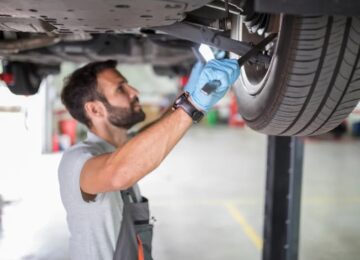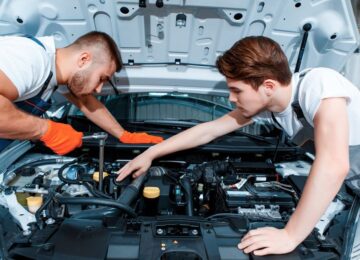Gasket seals are essential to the entire operation of an exhaust system because they stop exhaust leaks, which can result in toxic emissions, noise, and inefficient engines. The gasket, which is situated between parts such as the cylinder head and the exhaust manifold, guarantees a tight seal to stop exhaust gasses from escaping the system. Numerous problems, ranging from reduced performance to safety risks, may arise if the gasket fails. Maintaining the integrity of your car’s exhaust system can be facilitated by being aware of the function of gasket seals and the significance of appropriate material and fit.
Material Matters: Choosing the Right Gasket
Composition is crucial to gasket seal endurance and performance. Gaskets are made from graphite, copper, steel, and composites. Every material has attributes suitable for exhaust systems. Copper gaskets are used in high-performance applications due to their thermal conductivity, whereas graphite gaskets are flexible and heat-resistant, making them ideal for high-heat settings. Use the right material to ensure the gasket can withstand high pressure, temperatures, and corrosive exhaust gases, reducing leak risk.
Proper Fit: Ensuring a Tight Seal
An incorrect fit might result in exhaust leaks even with the greatest gasket material. Exhaust gasses might leak out of a gasket that is either too big or too small for the exhaust components. Additionally, this may result in an unequal distribution of pressure, which over time may cause more harm. It’s crucial to carefully match the gasket’s dimensions with those of the cylinder head and exhaust manifold during installation. For expert assistance, consider trusted Auto Repair in Sacramento, CA. The risk of engine inefficiency and potentially dangerous emissions is decreased when the gasket is properly fitted since it can effectively stop exhaust gases from escaping.
The Impact of Leaks on Vehicle Performance
Numerous performance problems, such as decreased engine power, poor fuel efficiency, and elevated emissions, can result from exhaust leaks. The engine’s air-fuel ratio is upset when exhaust fumes seep through a damaged gasket, which can result in misfires, slow acceleration, and engine reluctance. Furthermore, the emissions system of the car may be adversely affected by the release of dangerous gases like carbon monoxide, which could result in failed inspections or environmental issues.
Conclusion
Preventing gasket problems in your car requires routine exhaust system maintenance and inspection. Heat cycles and pressure can weaken, harden, or break gaskets over time, making it more difficult for them to seal properly. Regular inspections for leak indicators, such as strange engine noises or smells, can assist in detecting gasket problems before they cause more serious harm. Maintaining vehicle performance and extending the life of your exhaust system can be achieved by replacing worn-out gaskets with premium materials and making sure they fit properly during installation.











